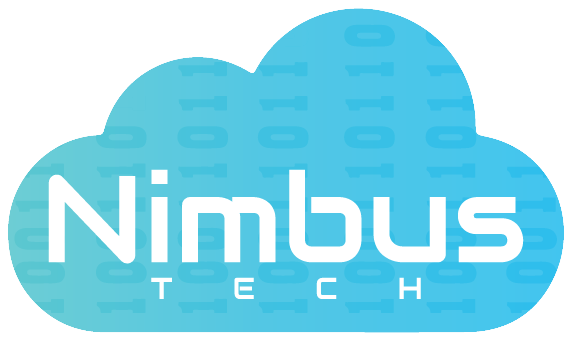Introduction
Artificial Intelligence has moved far beyond being a buzzword. Today, it is part of everyday life, impacting not just enterprises but also ordinary people. Today, it is embedded in the way we work, shop, travel, and even seek healthcare. Whether we realize it or not, AI touches our daily lives sometimes subtly through personalized recommendations, and sometimes profoundly through life-saving applications in healthcare or climate modeling. This blog explores the real-world impact of AI across different industries, highlighting both its benefits and challenges, while also examining what the future holds.
AI in Everyday Life
One of the most tangible impacts of AI is in everyday consumer experiences. Streaming platforms like Netflix and Spotify use recommendation algorithms to suggest movies or songs tailored to individual preferences. E-commerce platforms such as Amazon analyze browsing history and purchase behavior to present personalized product recommendations, improving the shopping experience while boosting sales. Ride-hailing apps like Uber use AI to optimize routes, predict demand, and adjust pricing in real time.
Smart devices further demonstrate AI’s reach. From voice assistants like Alexa and Google Assistant to AI-powered cameras and home automation systems, these technologies simplify daily life. In banking and retail, AI chatbots provide instant support, while fraud detection systems monitor millions of transactions to prevent financial crime.
AI Transforming Industries
AI’s biggest impact is seen in how it is transforming industries, driving innovation and efficiency at scale:
- Healthcare: AI assists in early disease detection by analyzing medical imaging for conditions like cancer and diabetic retinopathy. It supports drug discovery by speeding up simulations of molecular interactions and powers telemedicine by enabling remote diagnostics
- Manufacturing: AI-driven predictive maintenance reduces downtime by forecasting when machines are likely to fail. Computer vision systems perform quality control with unmatched accuracy, while robotics powered by AI enhance automation in production lines
- Telecom & Finance: Telecom operators use AI to predict customer churn and optimize network performance. Financial institutions rely on AI for credit scoring, fraud detection, algorithmic trading, and automating customer service
- Agriculture & Environment: AI helps farmers with precision farming through crop monitoring and yield prediction. In environmental science, AI models are applied to predict climate change impacts, optimize energy use, and develop sustainable practices
Economic & Workforce Impact
AI is acting as a productivity multiplier. By automating repetitive tasks, companies reduce operational costs and free up human talent for strategic roles. In sectors like customer service, AI-powered chatbots now handle millions of queries daily, reducing workload for human agents.
However, this transformation also brings workforce challenges. While new roles such as AI engineers, data scientists, and AI ethicists are emerging, many traditional roles face disruption. The need for reskilling and upskilling has never been greater. For developing markets such as Pakistan and the GCC, AI presents both an opportunity and a challenge: it can leapfrog industries into the digital age, but requires significant investment in talent development.
Social Impact & Challenges
AI has a profound social impact, bringing both positive outcomes and notable challenges. On the positive side, AI-powered translation tools break down language barriers, making global communication easier. Assistive technologies enhance healthcare outcomes and support visually impaired or differently abled individuals, fostering more inclusive environments.
Yet, challenges remain. If not carefully designed, AI systems can unintentionally reinforce biases for instance, in hiring or loan approvals, where certain groups may be treated more favorably or less fairly than others. Privacy is another key concern, as these systems often depend on processing large volumes of sensitive personal data. Building trust in AI requires greater transparency, strong ethical frameworks, and adherence to international standards such as GDPR and HIPAA to ensure fairness, accountability, and the protection of individual rights.
Future Outlook
Looking ahead, AI is all set to play a bigger role in shaping the future of industries and societies. The rise of agentic AI systems promises self-driven decision making, where AI doesn’t just analyze data but takes action in real time. In healthcare, this could mean automated triage systems and real time treatment recommendations.
AI will also play a central role in sustainability and green technology. From optimizing smart grids to predicting energy demand and reducing carbon emissions, AI is emerging as a key enabler of environmental responsibility.
Perhaps the most exciting development is the concept of human AI collaboration. Instead of replacing people, AI is increasingly seen as augmenting human intelligence. This shift toward assisted intelligence means workers can leverage AI as a partner, improving decision making, accuracy, and productivity.
Conclusion
AI is no longer a futuristic idea; it is a present day force reshaping how we live, work, and interact with the world. From personalizing our online experiences to transforming critical sectors like healthcare and manufacturing, AI is delivering real-world impact at scale. However, with its immense potential come challenges around ethics, bias, and workforce disruption. Addressing these issues requires thoughtful governance, strong ethical practices, and a commitment to inclusive growth.
At Nimbus Tech, we believe AI should be harnessed not just as a technology, but as a tool for transformation. By enabling businesses to adopt AI responsibly, we help unlock innovation, efficiency, and long-term growth while ensuring ethics and compliance remain at the center. The real world impact of AI is unfolding all around us, and we are committed to helping our clients stay ahead of the curve.

